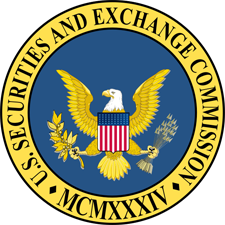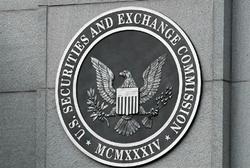Securities Fraud
Securities Fraud Defense in Riverside
 The Securities Act of 1933 and the Securities Exchange Act of 1934 primarily regulates securities fraud. The purpose of these acts was to ensure market competition by requiring full and fair disclosure of all material information in the financial marketplace. Both criminal and civil liability may find those who are accused or guilty of a securities fraud violation.
The Securities Act of 1933 and the Securities Exchange Act of 1934 primarily regulates securities fraud. The purpose of these acts was to ensure market competition by requiring full and fair disclosure of all material information in the financial marketplace. Both criminal and civil liability may find those who are accused or guilty of a securities fraud violation.
There are two main types of fraud which are the underlying foundation for charging a person for securities fraud: misrepresentations and/or omissions of material facts; and insider trading.
The most common securities fraud actions are misrepresentations and/or omission in connection with the purchase or sale of securities.
Insider trading occurs when a person has inside knowledge on a company’s dealings and uses that information to trade stocks. Through the course of insider trading, there is a breach of fiduciary duty because the person is using confidential, material, non-public, non public information for personal gain. Federal law makes it a crime to use inside information to buy or sell stocks.
Who is Likely to Be Charged with Securities Fraud?
- Corporate officers, directors or employees suspected of insider trading
- Corporate officers, directors or employees who make false accounting entries
- Investment brokers who misrepresent financial products
- Investment brokers who are “Churning” (excessive trading for personal benefit)
- Investment club organizers who give investment advice
- Investment club organizers who sell financial products without a securities license
- Ponzi schemes
What does the FBI consider “Securities Fraud?”
According to the FBI website, the term Securities Fraud covers a wide range of illegal activities, all of which involve the deception of investors or the manipulation of financial markets.
|
|
Common Scams—Making the FBI List for Securities Fraud
- Characterized by promises of high rates of return with little or no risk.
- Various investments: (e.g. securities, commodities, real estate, precious metals)
- “Too good to be true” investment opportunities.
- Perpetrators may contact victims by telephone, e-mail, or in person.
- The offers are generally unsolicited.
Ponzi & Pyramid Schemes
- Money from new victims to pay high rates of return promised to earlier investors.
- Payouts give the impression of a legitimate, money-making enterprise.
- In reality, NEW investors are the only source of payout funding.
Advance Fee Schemes (according to FBI)
- Victims advance relatively small sums of money in the hope of realizing much larger gains.
- Gains never materialize because there is no legitimate underlying investment.
- To participate, victims must first send funds to cover “taxes” or “fees.”
- After victims pay “fees,” the perpetrators never deliver on the investment.
False Statements to SEC
 Publicly traded companies that knowingly or unknowingly make false statements on quarterly or annual statements to the SEC are at significant risk of being charged with securities fraud. Those officers, directors or employees accused or charged with “cooking the company books,” –yes, even middle managers or lower-level corporate employees, are also at risk of charges. Even of you were simply “aware” of any wrongdoing or assisted in the most minute manner you are at risk of powerful, life-altering charges being leveled at you.
Publicly traded companies that knowingly or unknowingly make false statements on quarterly or annual statements to the SEC are at significant risk of being charged with securities fraud. Those officers, directors or employees accused or charged with “cooking the company books,” –yes, even middle managers or lower-level corporate employees, are also at risk of charges. Even of you were simply “aware” of any wrongdoing or assisted in the most minute manner you are at risk of powerful, life-altering charges being leveled at you.
Take Stock of your Situation or get Counsel to Weigh Your Choices
You may be at the height of your professional career with a great salary, terrific benefits, stock options, and the prestige of your position. To walk away from that is a BIG deal; a devastating choice when weighing your shrinking options. However, if the other option is a 10-year prison sentence that might be far worse. Better to consult with an attorney to talk through your choices with the shield of attorney-client privilege so you can make a prudent decision for the best possible outcome. To protect your interests, remember this: no one should voluntarily participate in an SEC investigation without first consulting with a white collar lawyer experienced in the defense of securities fraud allegations.
